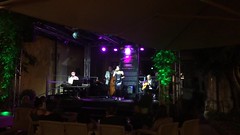“What difference does it make what you call it?”
Indeed, why is it so important to pay attention to the definitions we use, and use them accordingly? This is what Neil Postman is talking about when he pushes a colleague communications professor who “claimed to be a member of the community of social scientists” to utter her definition of science.
It is a refreshing and very current view, coming from his article “Social Science as Moral Theology”, which is found within his great “Conscientious Objections” of 1988 (Vintage). 
Postman states it is very important to distinguish science from non-science, since, as I said earlier, we want to understand well the meaning of definitions and perhaps agree upon them. Also, he adds, people sometimes tend to attach the magic word “science” to something just to benefit from the prestige it has. So it goes with “Christian Science, Creation Science, Scientology, Policy Science, as well as Behavioral and Social Science”.
Postman is very clear on this: “I do not believe psychologists, sociologists, anthropologists, or media ecologists do science”. He believes that
the quest to understand human behavior and feeling can in no sense except the most trivial be called science.
That’s it. Of course, neither he nor I believe that by not calling such disciplines “science” we are attaching to them less respect or admiration, or less importance. On the contrary, by calling them what they are we make it easier for them to establish their own methods and pathways. When one calls something “science” –Postman explains– one inevitably and justly limits the kind of inquiries that may be asked and the methods with which they are pursued. Then, and just as inevitably, such disciplines are impoverished, because their researchers and practitioners are compelled to abide by rules and methods which are not intended for them. Every discipline, I may add, has its own mindset, and we wouldn’t pretend to do research in say, literature, by using the scientific method. Were I to call such a research “scientific”, I would thus limit without reason the kind of investigation and pursuit of knowledge that may be possible with other non-scientific methodologies. In sociology, for instance, there is often the tendency to apply statistics to some “research question” and then find correlations among variables. Unfortunately, unless some kind of causality may be proven, correlations do not give us much useful information.
For instance, if after taking an aspirin my headache stops, I may conclude that it stopped because of the aspirin. But that would be wrong, and that experiment –even when repeated thousands of times– would only show there is correlation between taking an aspirin and headaches going away. That in itself wouldn’t explain why sometimes my migraine doesn’t go away. It is only through biochemical and neurological research that we can understand what happens within the brain when we take an aspirin, so we can pronounce that its effect (stopping the migraine) is due to this or that reason.
I just add, again, by following Postman’s discourse (who is also following Popper’s), that any discipline which is not able to devise experiments to confirm or falsify its theories is not science. Not less valid or interesting or useful. Just not science.
We need to know where we stand, after all. And thanks to Postman for “stirring up trouble”!



